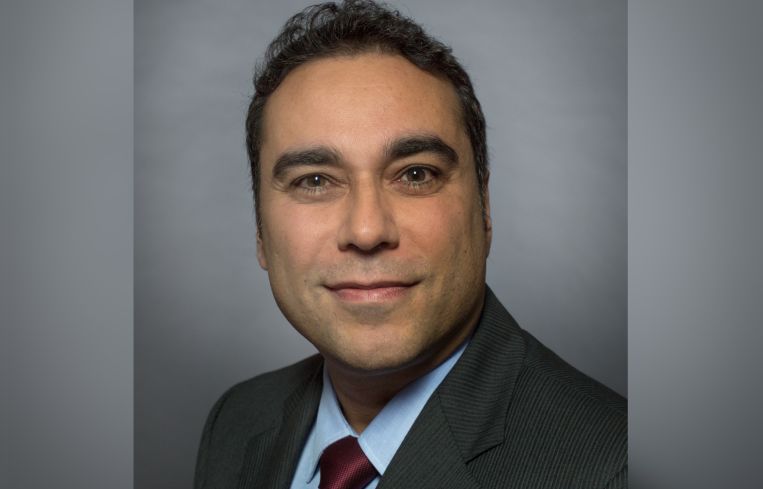TCW’s Iman Brivanlou On How Science Can Drive REIT Investments
The portfolio manager holds a degree in physics from MIT and a doctorate in neuroscience from Harvard
By Andrew Coen August 18, 2025 6:30 am
reprints
During his nearly 20 years tracking real estate investment trusts (REITs) at TCW Group, Iman Brivanlou has leaned heavily on his unique scientific background to determine how market patterns will steer various property sectors.
Brivanlou, who arrived at TCW Group in 2006, holds a bachelor’s degree in physics from the Massachusetts Institute of Technology and a doctorate in neuroscience from Harvard University. The portfolio manager of TCW’s relative value and real estate equity strategies was also a Howard Hughes post-doctoral fellow in molecular neurobiology at the Salk Institute for Biological Studies in La Jolla, Calif.
Los Angeles-based Brivanlou eventually shifted to a financial focus and received his MBA in finance and strategy from the UCLA Anderson School of Management in 2006, just before joining TCW. He sat with Commercial Observer to discuss how his science experience has helped with REIT investment decisions, what asset classes TCW is targeting in 2025 and how tariff uncertainty is already impacting certain property sectors.
The interview has been edited for length and clarity.
Commercial Observer: How has your science background helped in your current role tracking REITs?
Iman Brivanlou: Scientific methodology is a very good training ground for an investor because the whole process is one where you develop a hypothesis, conduct an experiment and then you either validate or you disprove your hypothesis.
When you think about investing, it is actually not too dissimilar. Your hypothesis is your investment thesis, as if you think stock is going to go up, then that’s why you buy it. You don’t need to perform an experiment as the market renders the judgment or outcome over time, and you can very easily see three months later, six months later or a year later whether your hypothesis was correct. There is no subjectivity.
The training that I received in science allows me to move on from a hypothesis once the evidence is against it and the market renders a verdict. People oftentimes will double down, or redouble down, on a particular investment thesis when, in fact, they should just be willing to accept that they were wrong and move on. The scientific training — if anything — makes that more palatable because experiments don’t pan out on a regular basis, and so then you move on from the hypothesis.
What property sectors is TCW most focused on for investment opportunities in 2025?
We run a broad real estate strategy, so we monitor all of the sectors. But currently, the ones that are most appealing to us are those that are compelling from a visibility or a secular tailwind story. So, that would be things like data centers or towers or healthcare or things that are compelling from a valuation standpoint, like residential and apartments.
How has the higher-for-longer interest rate environment been reshaping real estate valuations?
Higher interest rates are most impactful on those subsectors that are most bond-like, such as triple-net leases, healthcare properties or casinos that typically have high duration leases so multiples get more compressed. On the other end of the spectrum, you have sectors that reprice. In some cases, that’s nightly, like hotels, or less than a year, with apartments. But the supply issue is often overlooked because people often have knee-jerk reactions and think higher interest rates are bad for real estate. Yes, they are, but they also curb new supply coming in.
Do you see REITS emerging as a compelling investment opportunity amid the current market volatility after years of market headwinds?
If you look at a 10-to-15 year time frame, there has been a dramatic underperformance of REITs relative to the broader market. There’s a number of reasons for this, but a lot of it is due to the fact that REITs are not participating to the full extent in the AI-driven or technology-driven boom that has occurred when you look at a broad market index like the S&P.
There was also a fairly dramatic impact on REITs with COVIDbecause real estate was so adversely impacted, and the interest rates volatility that has ensued. We stood at the beginning of the year on a stage where that performance divergence was as pronounced as I’ve ever seen it in my career, since I’ve been covering this space since 2006. In my opinion, it is just bound to revert.
How are the global tariff policies implemented by the White House impacting REITs, and which sectors have been most affected?
The most impacted sector has by far been industrial, since that is a sector with fundamentals largely driven by trade. The giant in the space, Prologis, used to position itself as a play on global trade growing — and that was the “ globalization” play a decade ago when globalization was still a thing. They trumpeted the fact that their properties were near ports and transportation hubs, and benefited for a long time as that globalization took hold.
Now, we’re getting a little bit of a reversal, and we’re back onshoring as a trend. Uncertainty around the absolute level of tariffs has caused a certain amount of paralysis or indecision, not just in shipping but also in terms of real estate decisions and how much these platforms invest.
Job and consumer uncertainty has pressured, to some extent, residential and retail spaces, and then there’s also the weakening dollar. The dollar weakening has actually benefited those REITs that have global portfolios like towers and data centers, so there have been some subsectors or companies that have actually benefited from that uncertainty.
Andrew Coen can be reached at acoen@commercialobserver.com.



